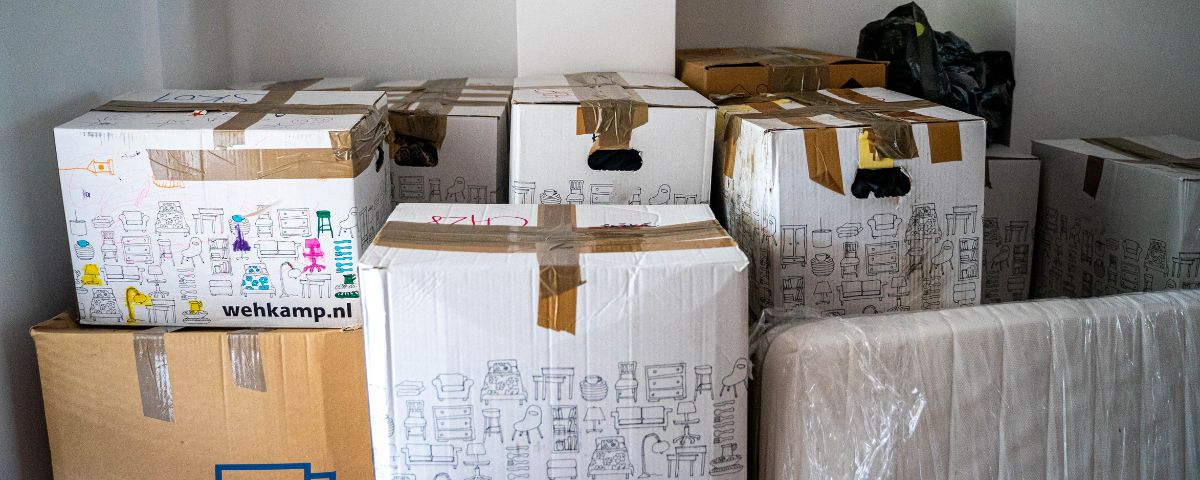
Preparing for a move can be overwhelming, but the right packing tips for moving house can make it feel much more manageable. We’ve listed some of our top tips to help you stay organised and reduce stress on moving day.
1. Declutter early and pack strategically
The key to successful packing is to start early and be selective about what you take to your new home. We recommend starting at least four to six weeks before your move date.
Start with non-essential and seasonal items
Begin packing items you won't need in the weeks leading up to your move. Box up seasonal clothing, books, decorations and rarely used kitchen gadgets first. This approach allows you to tackle the bulk of your packing gradually.
Donate, sell or recycle
Moving is a great opportunity to declutter by donating, recycling or selling any belongings you no longer want or need. It’s also an easy way to cut down on packing and removal costs, and it can help your new place feel less cluttered from the start.
Before spending money on boxes, ask your family and friends if they have any spare ones you can use. Sort through each room and create five piles: keep, donate, sell, recycle and discard. The less you take with you, the quicker and more affordable your move will be.
Looking for tips on keeping your new home more organised? Read our helpful decluttering guide.
2. Use the right boxes and packing materials
Investing in quality packing materials will protect your belongings and make the moving process smoother. Having the right supplies on hand prevents delays and potential damage during transit.
Choose strong boxes for heavy items
Strong, double-walled boxes are ideal for transporting heavy items, such as books, documents and kitchen appliances. Use smaller boxes for heavier items to prevent the bottom from giving way and to make them easier to lift. You can sometimes get free boxes from the supermarket, but check that they’re in good condition.
Wrap fragile items and use soft linings
You can use bedsheets and towels to protect fragile items instead of buying packing materials like plastic wrap. This environmentally friendly approach works well for plates, glasses and ornaments. Transport kitchen utensils and cutlery inside padded items such as oven gloves for extra protection and efficient use of space.
3. Label your boxes
Proper labelling is essential for an organised move and can save you hours of searching through boxes when unpacking. Clear, detailed labels also help removal teams place boxes in the correct rooms and help you prioritise what to unpack first.
If you’re taking furniture apart for the move, keep any screws and bolts in a labelled bag and tape it to the piece it belongs to.
Use colour-coding or numbered lists
Assign each room in your new home a specific colour or number and create a colour key for movers to follow. Number your boxes and write down what’s inside. Tape the same label on each side of the box and place one on top to ensure visibility from any angle.
4. Efficient packing techniques
Packing efficiently helps protect your belongings and maximise space in the removal van. These tips will help you pack more effectively and reduce the risk of damage during transit.
Put heavy items in small boxes and light items in large ones
Large boxes should only contain lightweight items, such as bedding, pillows and lampshades. This prevents boxes from becoming too heavy to lift safely and reduces the risk of breakage. Pack heavier items like books and documents in smaller boxes so they’re easier to carry.
Stack weight wisely and tape securely
Always pack the heaviest items at the bottom of the box and the lightest at the top. Fill every gap to prevent items from shifting during transport. Make sure to use quality packing tape to seal all the edges and use extra tape on the bottom so nothing falls out during the move.
Ready to find your new home? Explore our range of brand-new homes designed for modern living.
Our Sales Advisers are on hand to guide you through your homebuying journey.


